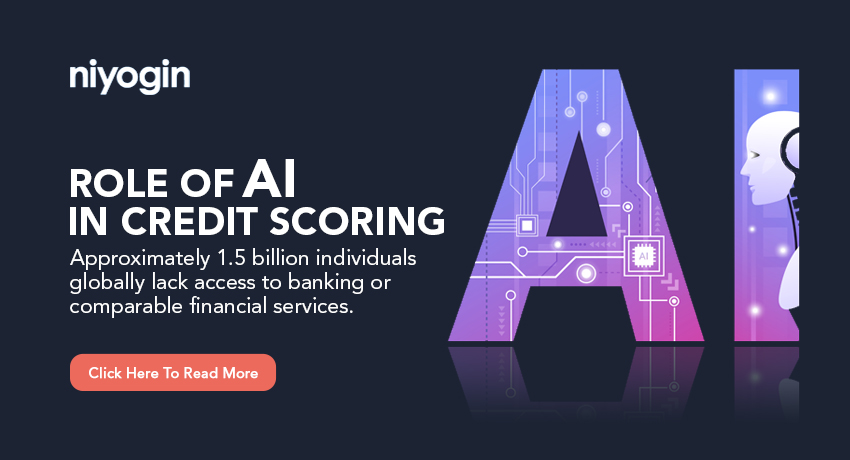The financial services sector is experiencing a significant shift due to the rapid progress of technology and the rise of innovative fintech solutions. Players in the industry face both opportunities and challenges as fintech transforms traditional banking and financial practices. Let us view the dynamics of fintech disruption and collaboration, highlighting the key trends and implications for the future of finance. The Emergence of Fintech Disruption Customer-Centric Solutions: Customer-centric solutions have helped fintech disruptors gain traction. They provide seamless, individualized, and practical financial services by utilizing mobile technologies, artificial intelligence, and advanced analytics. This change puts pressure on established financial institutions to change and improve their clientele’s experience. Blockchain Technology and Cryptocurrencies: These innovative financial tools have made transactions safe and transparent by introducing decentralized financial systems. They are upending established banking models, but they also present regulatory risks and uncertainties. The distinction between traditional and digital finance is becoming hazier as central banks investigate the integration of digital currencies. Alternative Lending Platforms: Traditional lending methods have been upended by fintech companies that specialize in crowdfunding and peer-to-peer lending. By eschewing traditional banks, these platforms give individuals and small businesses quicker access to capital. This has forced well-known financial institutions to reconsider how they lend money. Robo-Advisors: Wealth management has undergone a significant transformation with the emergence of robo-advisors, which provide automated and algorithm-driven investment advice. Traditional financial advisors are facing competition from fintech disruptors who have drawn in a new generation of investors. The industry is seeing a convergence of human expertise and robo-advisory to offer hybrid solutions. Fintech Collaboration: Partnerships with Incumbents: A lot of fintech companies understand the benefits of working with well-established financial institutions. Through partnerships, fintech companies can reach a wider range of consumers, and traditional banks can take advantage of cutting-edge technologies without having to make major changes to their current infrastructure. Regulatory Compliance Solutions: To improve openness and compliance with legal requirements, fintech companies are working with regulators and compliance specialists. By working together, we can make sure that technology progresses in line with moral and legal requirements, which will make the financial system safer and more stable. Initiatives for Open Banking: Open banking frameworks promote cooperation by granting third-party fintech companies access to bank customer data (with permission). As a result, innovation is encouraged, and new financial services and products can be developed while protecting the confidentiality and security of client data. Collaboration Across Industries: Fintech disruption goes beyond traditional finance and fosters cooperation with the tech, telecom, and e-commerce sectors. Synergies from partnerships spur innovation and broaden the financial services industry’s reach. The fintech ecosystem is characterized by a dynamic interplay between cooperation and disruption. Disruptive technologies upend established norms, but cooperation between fintech companies and traditional institutions is essential for managing regulatory complexities and guaranteeing the financial sector’s long-term stability. The future looks to be one of peaceful coexistence as innovation and cooperation propel the development of finance, ultimately serving the interests of both enterprises and consumers.
Month: January 2024
How are Regulatory changes impacting Fintech?
In the dynamic realm of fintech, regulatory changes have become a driving force reshaping the landscape and influencing the trajectory of innovation. The intersection of finance and technology is undergoing a profound transformation, with regulatory bodies adapting to the evolving nature of digital finance. As financial technology continues to redefine traditional banking and payment systems, the regulatory framework plays a pivotal role in either facilitating or constraining the growth of fintech enterprises. Regulatory changes have a big impact on the fintech business. The authorities and governments worldwide are constantly upgrading and adjusting their regulatory frameworks to keep up with the evolving fintech landscape. The Reserve Bank of India (RBI) recently announced new regulations targeted at tightening lending norms on unsecured loans, sending vibrations across the fintech sector. This development represents a fundamental shift in the regulatory landscape, affecting how fintech companies operate and expanding their influence over the developing unsecured lending industry. Here are a few examples of how regulatory changes affect the fintech industry: Licensing and Compliance To operate lawfully, fintech companies are frequently required to get licenses and follow rules. Changes in licensing requirements, compliance standards, and reporting duties can impose additional expenses and administrative constraints on fintech enterprises. Consumer Protection Regulators strive to safeguard consumers from potential hazards linked with fintech services, such as fraud, data breaches, or predatory loan practices. To promote consumer protection, regulatory changes may impose new requirements for transparency, security, and dispute resolution. Data Security Fintech firms frequently deal with sensitive client data. Regulatory reforms, such as the General Data Protection Regulation (GDPR) of the European Union or comparable data protection legislation in other countries, put severe limitations on how data can be gathered, stored, and utilized, hurting fintech business models that rely on data-driven insights. AML and KYC Regulations AML and KYC requirements apply to fintech organizations, particularly those involved in payments and digital currencies, to prevent money laundering and terrorist financing. Regulatory changes in this area may affect customer onboarding and continuing monitoring. Payment Services and Digital Currencies Fintech firms that provide payment services or digital currencies may face specific regulatory changes, such as those related to cryptocurrencies, central bank digital currencies (CBDCs), and open banking, impacting their operations, interoperability, and competition. Crowdfunding and Peer-to-Peer Lending Changes in rules governing crowdfunding and peer-to-peer lending platforms can influence fundraising, lending, and investment activities. Regulatory reforms may impose investment limitations, disclosure requirements, and investor protection safeguards. Regulatory Sandboxes Some regulatory bodies set up fintech sandboxes, which allow companies to test new products and services while receiving regulatory relief. These sandboxes can serve as a haven for fintech innovation. Cross-border legislation Fintech firms frequently operate across borders, and dealing with differing foreign legislation can be difficult. Regulatory changes affecting cross-border payments, remittances, and financial services can have a substantial impact on the worldwide expansion efforts of fintech companies. Market Entry and Competition Regulatory changes can support or hinder market entry for fintech startups and existing enterprises. Depending on the regulatory framework, some modifications may lessen entry barriers, while others may favour incumbents. Cybersecurity and Resilience Fintech enterprises must comply with cybersecurity and operational resilience rules to protect against cyber threats and assure the continuity of vital financial services. Therefore, fintech firms must manage the complicated regulatory landscape efficiently, stay updated about evolving legislation, modify their business models, and invest in compliance. Depending on how these changes are implemented and managed, they can both generate opportunities for innovation and pose obstacles for fintech organizations.
Role of AI in Credit Scoring
Approximately 1.5 billion individuals globally lack access to banking or comparable financial services. For the rest of us, less than half of those with bank accounts are eligible for lending. More intelligent credit assessment methods are needed to increase banks’ loan-making capacity. Thus, AI-driven credit scoring models have emerged as a game changer, providing more accurate, efficient, and equitable means of evaluating credit risk. Traditional Credit Scoring Restrictions: Traditional credit scoring models have been in use for decades and primarily rely on a few key characteristics, such as a person’s credit history, payment history, outstanding debt, duration of credit history, and credit types used. While these models have fulfilled their purpose admirably, they are not without limits. Lack of Comprehensive Data: Traditional models frequently rely entirely on credit bureau data, which might exclude several important elements that may influence creditworthiness, such as income, employment history, and savings. Inflexibility: Traditional models are relatively inflexible and cannot adjust to changing economic conditions or individual circumstances. They have predefined thresholds that may not account for complex credit risk evaluations. The Importance of AI in Credit Scoring Machine learning algorithms are used in AI-powered credit scoring to overcome the limitations of traditional models and provide a more holistic and accurate credit risk assessment. Here’s how AI will impact credit scores in the coming times: Expanded Data Sources: AI models take into account a diverse set of data sources, such as bank transactions, social media profiles, and other non-traditional information. This additional information contributes to a more complete picture of a borrower’s financial health. Dynamic Scoring: AI models can adjust to shifting financial situations and economic elements in real time. This flexibility is especially useful during economic downturns or for borrowers with shifting incomes. Reduced Bias: AI algorithms are supposed to be more unbiased, eliminating human biases that can enter into traditional scoring techniques. They hold the promise of more equitable financing decisions. Improved Accuracy: Because AI algorithms can analyze massive volumes of data, they can provide a more accurate assessment of a person’s creditworthiness. This allows lenders to make better-informed lending decisions, lowering the chance of default. Faster Decision-Making: With AI, credit scoring can be done in real time, greatly accelerating the loan approval process. Borrowers have faster access to funds, which is especially crucial for personal and small company loans. While artificial intelligence has made significant breakthroughs in credit rating, there are still issues and concerns that must be addressed. To summarize, AI is playing a transformative role in the world of credit scoring. However, in order to reap the benefits of AI ethically, the financial industry must address issues such as data privacy, bias, transparency, and regulatory compliance. As technology advances, the importance of AI in credit assessment is expected to grow even more, suggesting a future in which lending decisions are more inclusive, accurate, and rapid.
The Ethics of Data Sharing in Fintech
Over the last decade, the fintech industry has grown at an exponential rate, revolutionizing how we manage, invest, and transact money. The use of enormous volumes of data is crucial to this transition. Fintechs use data to deliver personalized services, decrease risks, and improve efficiency. However, this rapid evolution creates significant ethical concerns about data sharing in the fintech business. They need to consider the ethical considerations surrounding data sharing and strike a balance between innovation and privacy in the following ways: Consent with Knowledge Obtaining informed consent from users is one of the fundamental foundations of ethical data sharing in the fintech industry. Users should be properly informed about the data being gathered, how it will be used, and who will have access to it. Individuals can make informed decisions about sharing their data because of this transparency. Fintech firms must ensure that consent is not buried in lengthy terms and conditions but rather offered in a straightforward and accessible manner. Data Protection The protection of financial data is critical. Fintech organizations must protect consumer data from breaches and unauthorized access. A breach not only jeopardizes people’s privacy, but it can also have serious financial consequences. To protect sensitive information, ethical data sharing necessitates sophisticated encryption, authentication, and cybersecurity procedures. Data Reduction Fintech companies should only gather and exchange data that is required for their services. The ethical principle of data minimization states that businesses should avoid gathering excessive or irrelevant information. Companies can lower the risk of data exploitation and increase user confidence by adhering to this approach. Third-party sharing Fintechs frequently interact with third-party service providers and share client data to improve their offers. Ethical concerns arise here since these third parties may not share the same commitment to data protection. To guarantee that data sharing meets ethical standards, these firms must thoroughly screen and monitor the practices of their partners. Anonymization and de-identification of data Data anonymization and de-identification techniques can be used by firms to preserve user privacy. This entails deleting or masking personally identifiable data from data collections. While this method can help to retain privacy, it is not without flaws, and there is always the potential for re-identification. To fulfill growing ethical requirements, fintech firms must constantly examine and improve their strategies. Fair and Non-Discriminatory Use Data should not be used to discriminate against individuals based on their colour, gender, age, or other protected characteristics, according to ethical data sharing. To avoid perpetuating bias and discrimination, algorithms that use data for decision-making must be rigorously evaluated. Fintech companies must ensure that their services are available and equitable to all. Accountability and Regulation To preserve ethical standards in data sharing, fintechs should develop explicit policies and procedures for data processing. Furthermore, they must hold themselves accountable for any data breaches or misuse and cooperate with regulatory organizations. Government regulations and industry norms are critical to establishing the ethical foundation for data sharing. Above all, the fintech industry’s inventive use of data has the potential to revolutionize financial services and improve people’s lives. Finding the correct balance between innovation and privacy is critical to ensuring that companies perform responsibly in their data-sharing practices. Finally, the success of the fintech industry is dependent not only on cutting-edge technology but also on ethical data-sharing practices that foster trust and respect for individuals’ rights.



